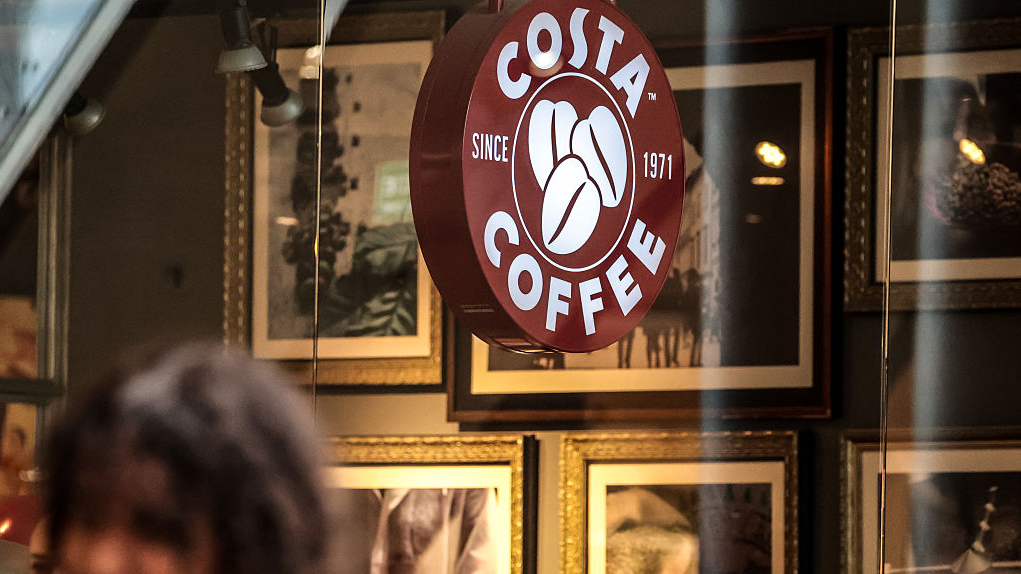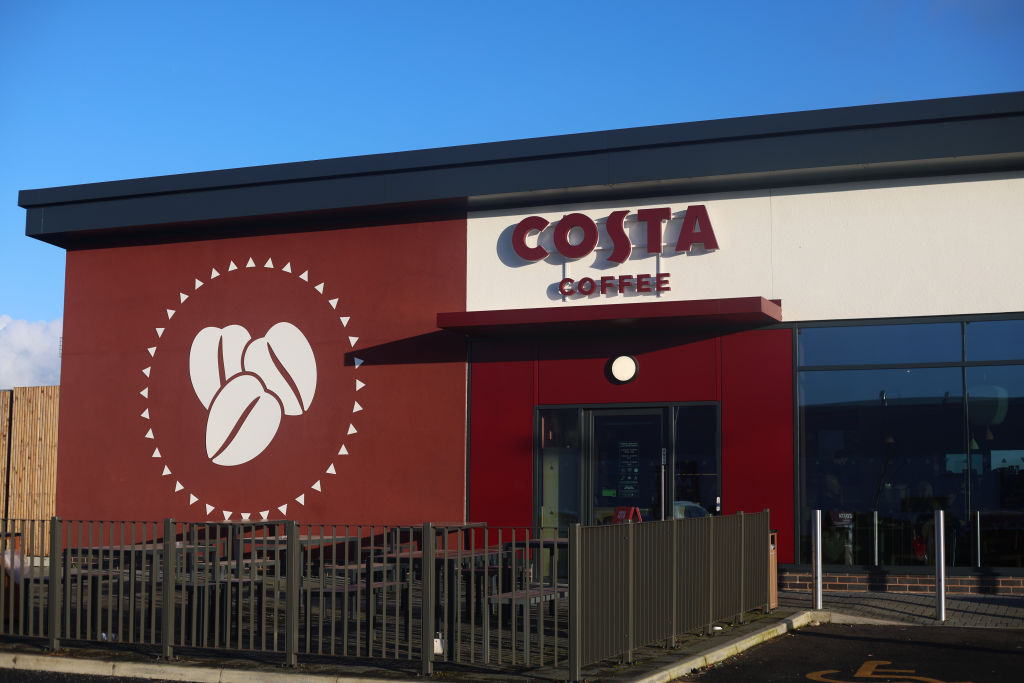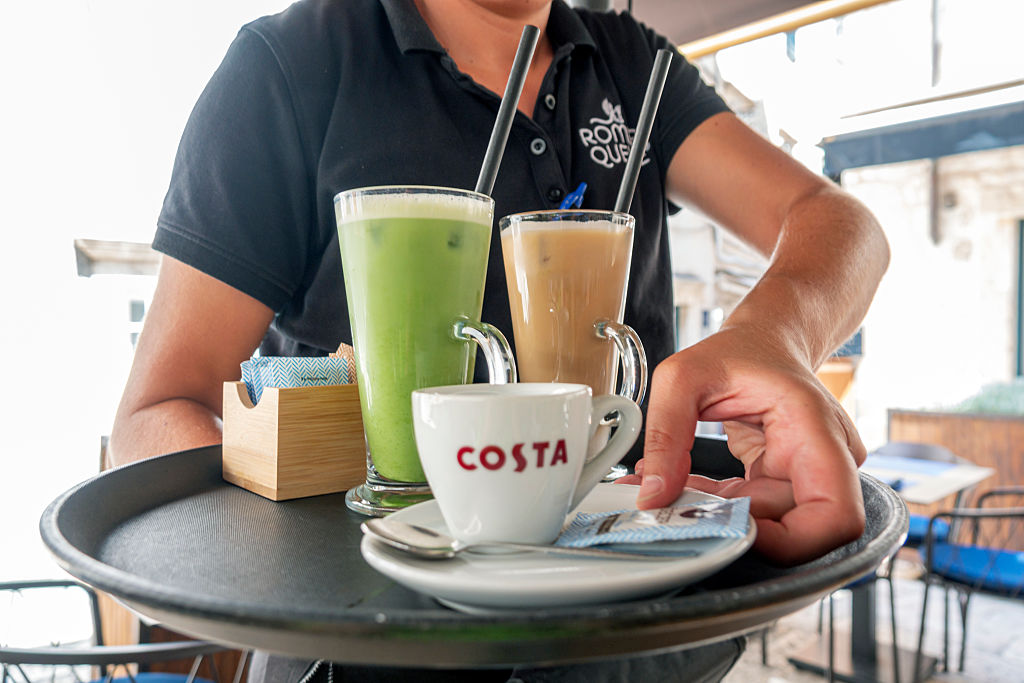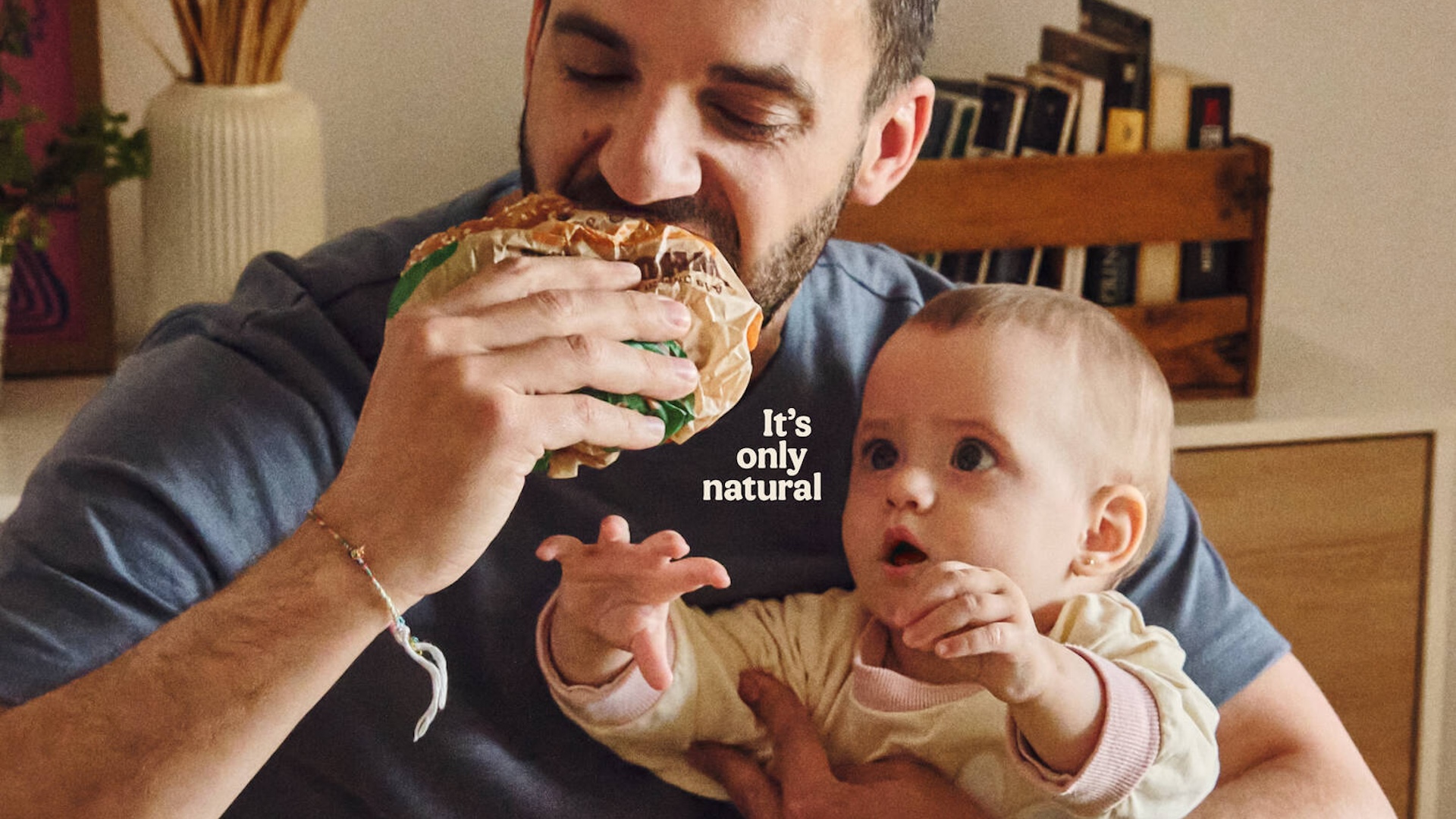Flat white or flatlining? Costa needs a double shot of innovation
Why Costa Coffee needs to embrace its heritage.

Once the UK’s most familiar coffee chain, found on every high street, Costa is now anticipating being sold by owner Coca-Cola for £2bn less than the soft drinks behemoth paid for it in 2019. A striking headline, but perhaps not a surprising one.
In a world where cafe culture moves as fast as your For You Page, it’s incredibly easy to fall behind. Matcha is having its moment and pumpkin spiced latte season is once again in full swing.
For brands at the top, coffee isn’t just coffee anymore, it’s an experience, a ritual, an indulgence to be shared and snapped and hunted down for limited editions. Culture moves quickly these days and cafés especially illustrate how brands need to stay ahead and create their own hype cycles. Costa certainly hasn't picked up a Brand Impact Award 2025 for its identity or groundbreaking campaigns.

The battle to be culture supremos
The strongest coffee brands shape consumer demand rather than respond to it. For instance, Starbucks’ seasonal rituals like the Pumpkin Spiced Latte and its iconic red Christmas cups, demonstrates how turning limited-time offerings can turn into cultural milestones. Customers rush to participate in the Starbucks calendar and the brand knows how to leverage these beloved moments.
But challengers are also successfully tapping into culture. Relative newbie Blank Street, the New York-based chain now expanding into the UK, recently partnered with pop sensation Sabrina Carpenter on a pop-up collaboration that had fans queuing down the street.
Meanwhile, the well-established Caffe Nero is carving out moments of relevance with playful “little treat” lattes in trending flavours like pistachio and tiramisu. They drive customers to keep buying – and reviewing – and stay relevant in the process.
These brands understand that they are in the business of creating viral moments that feel fresh, fun and irresistibly shareable, just as much as they make coffees. They compete with a world in which serious coffee drinkers make world-class coffees at home, making innovation and brand personality the new cultural currency.
Daily design news, reviews, how-tos and more, as picked by the editors.
Café culture has never been just about getting your daily caffeine fix. It lies in connection, belonging and identity. Coffee shops are spaces where people hang out, work, socialise and date. They’re as much about the ritual as the drink itself.
That’s why it’s not enough for them to serve decent flat whites. They need to create experiences that feel alive in the cultural moment. Where brands used to follow culture, successful coffee brands are now actively shaping it.
A chance for reinvention

In this world, it’s easy to see how a stalwart like Costa has slipped into the background. For years it was the reliable meeting point on every British high street. A safe choice. But in a world where consumers are spoilt for choice, “safe” just isn’t enough.
The brand is no longer sparking conversation, creating trends, or embedding itself in people’s daily rituals
The brand is no longer sparking conversation, creating trends, or embedding itself in people’s daily rituals. Despite its loyalty scheme, it is losing equity in the market it once owned. Most cafe customers are driven as much by intrigue and innovation as they are rewards and driving loyalty means staying at the forefront of cultural consciousness. If you don’t you risk becoming irrelevant, despite the size of your retail footprint.
But Costa’s story doesn’t have to end here. There’s still enormous equity in the brand and deep affection from British consumers. The opportunity for a comeback lies in embracing a genuinely culturally-led brand transformation. And the chain could outflank competitors by finding inspiration for its shift further afield.
Igniting the spark from within
Brand heritage brings a lot of value but it is often disruptor brands that drive real sector change. Costa needs to create a smooth blend of both approaches. As the coffee market expands to encapsulate far more than coffee – selling anything from lavender matchas to a lifestyle – Costa should look to other, fast-evolving sectors to stay ahead.
Businesses like Monzo, Octopus Energy and Vitality Health have shown marketers that even the least ‘sexy’ of industries can build beloved brands by embracing a more human approach. They bring a fresher presence, educate customers and reward loyalty via a playful user experience (UX) to keep consumers coming back. I never miss a chance to spin the ‘wheel of fortune’ when submitting meter readings on Octopus, or check my Vitality app to see if I’ve done enough steps for a free Itsu.
The wavering coffee chain could easily pursue this human-led strategy. We’re talking about a genuine, Italian-led family brand: two brothers who started with a single coffee shop in London. It feels a world away from the corporate cafe we now see in airports and cinemas.
Why shouldn’t the Costa Club app drive that heritage and family story home? Loyalty to drinks alone is no longer enough when new viral recipes are popping up on a daily basis. People love to connect with stories and emotion. A free coffee once a month won’t keep shoppers from straying to try the latest matcha flavour elsewhere.
Transformation isn’t just about bold campaigns or flashy new products
Transformation isn’t just about bold campaigns or flashy new products. The likes of Blank Street hasn’t become a cultural icon by luck. As a challenger brand, it continues to thrive by embedding cultural energy deep into its organisation so that every interaction, every decision and every customer experience feels alive, consistent and relevant. When culture sparks within, it ignites everywhere.
Costa has the power and the brand to do just that. By leaning back into its heritage with rich storytelling, sparking conversation with authentic cultural moments and offerings, and a stronger loyalty offering, it can regain its place in the public consciousness – and in caffeine-lovers’ lives.
To win the future, Costa – just like its customers – needs to enjoy deviating from its usual.
For more on embracing a brand's heritage, read this piece on when it's ok to break from a brand identity.

Laura is the chief innovation officer at BBD Perfect Storm. Previously Laura was CSO and managing director of one of the UK’s largest social first publishers, JOE UK, crafting original branded content for leading global brands, such as Deliveroo, Spotify and FIFA as well as managing the digital activation of the Hotels.com & UEFA Champions League partnership. Before this, Laura ran a Cannes Gold award winning creative agency, where she pushed the boundaries in digital innovation, collecting a raft of media firsts across AR, Mobile and immersive storytelling.
You must confirm your public display name before commenting
Please logout and then login again, you will then be prompted to enter your display name.
